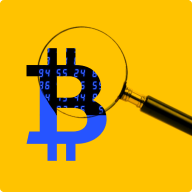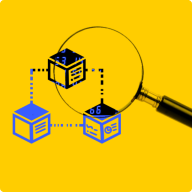Exodus is a simple, free-to-use cryptocurrency wallet that provides storage for your coins from exchanges or NFTs (non-fungible tokens) from marketplaces. Because the wallet is connected to the internet, it is classified as a hot wallet.
What is the Exodus wallet and its key features?
The Exodus wallet is a desktop-based digital asset management system that allows users to store, manage and exchange cryptocurrencies. The software is free to download on Windows, macOS and Linux systems.
The wallet was created in mid-2015 by entrepreneur and software developer J.P. Richardson and Daniel Castagnoli, and Exodus was officially launched in July 2016. The wallet is considered to be one of the most user-friendly digital asset management platforms because of its clean interface and simple design.
Exodus provides several features that are attractive to users, including the following:
- Support for more than 225 different kinds of cryptocurrency assets.
- Fully integrated with the FTX crypto exchange, allowing users to trade directly from their wallet.
- A mobile app that allows users to manage their assets on the go.
- The ability to place a custom maximum amount to pay in gas fees.
- Ability to buy cryptocurrencies with the U.S. dollar, euro or the British pound.
- 24/7 customer support.
Its most notable feature is its 24/7 support and can be found through different channels:
- Chatbot – You can access the chatbot by clicking on the icon on the homepage. You can either search through its help documents or speak to a representative.
- Discord – This channel has more than 11,000 members. You can access Exodus' official Discord channel here.
- Reddit – This an active community where members post technical issues, feature requests and crypto-related content.
There is also a comprehensive library of support documents in the “support” tab that includes general education on blockchain topics as well as information in Spanish.
How to get started
Before you begin, you should be familiar with the assets Exodus supports, which you can find here. For demonstration purposes, we will guide you with the desktop installation because it is similar to that of the app on iOS and Android.
1. Download the Exodus wallet from the official website, which is available for Windows, Mac and Linux.
2. Click the drag-down arrow to choose the appropriate installation file for the operating system. Exodus won't require you to fill in your full name, email address and country of residence, which is part of a “know-your-customer” (KYC) process.
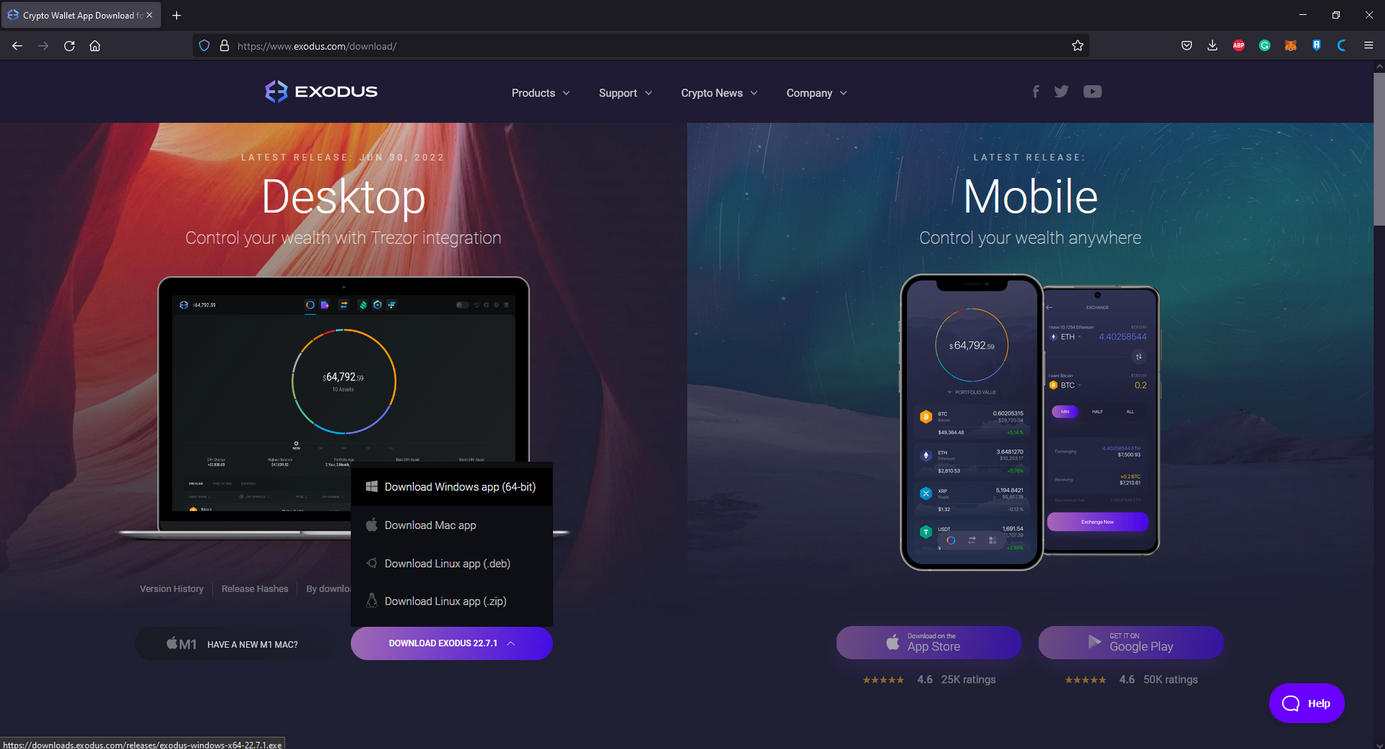
How to get started: step 2 (Exodus Wallet)
3. Upon completion of the installation, the Exodus Wallet app will pop up on your desktop as seen below:
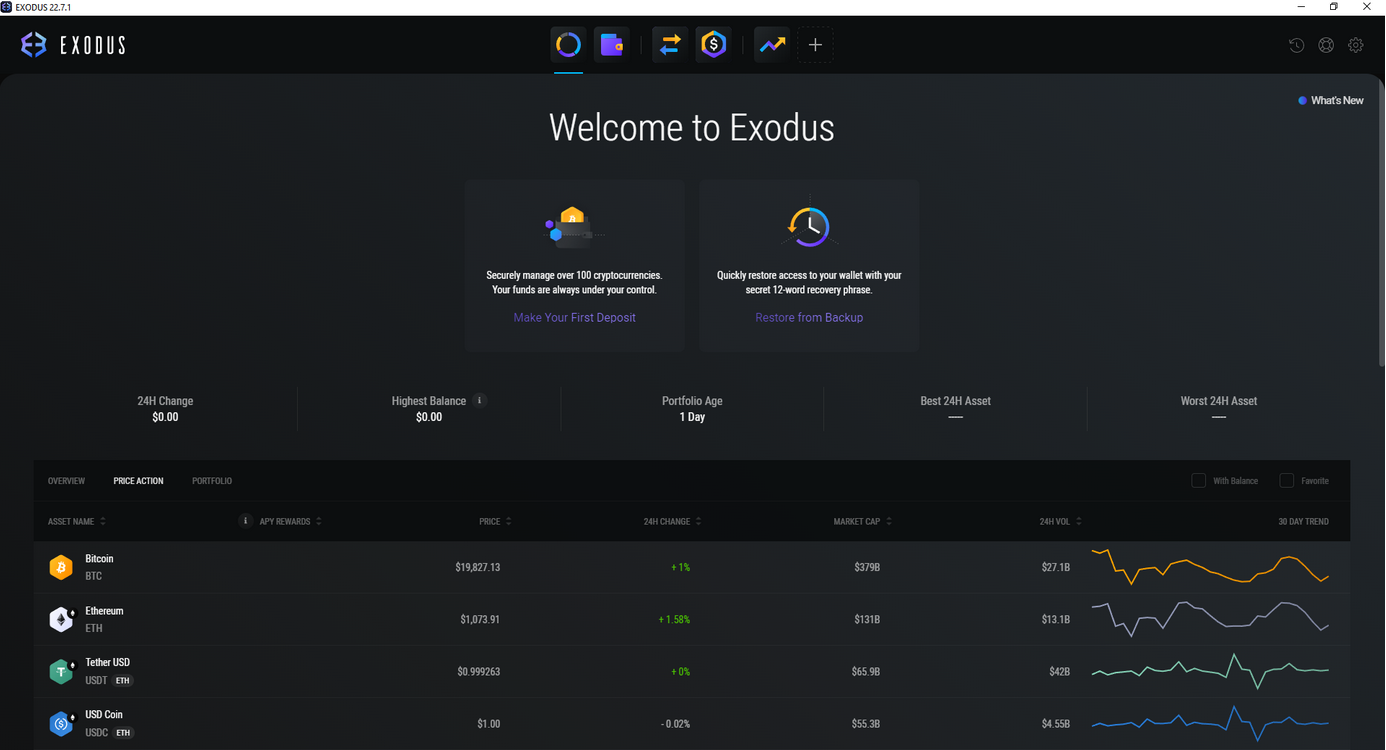
How to get started: step 3 (Exodus Wallet)
4. Next, you need to secure your wallet, which is not part of the installation process. To do that, you need to click on the gear icon (third icon from the top right) to bring up settings.
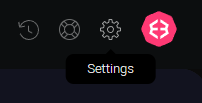
How to get started: step 4 (Exodus Wallet)
5. Click on either the security or backup tab to begin creating your password. You will need to choose a strong password to protect your account.
Remember: Never lose or forget this password, because it will be required to access your Exodus wallet in the future.
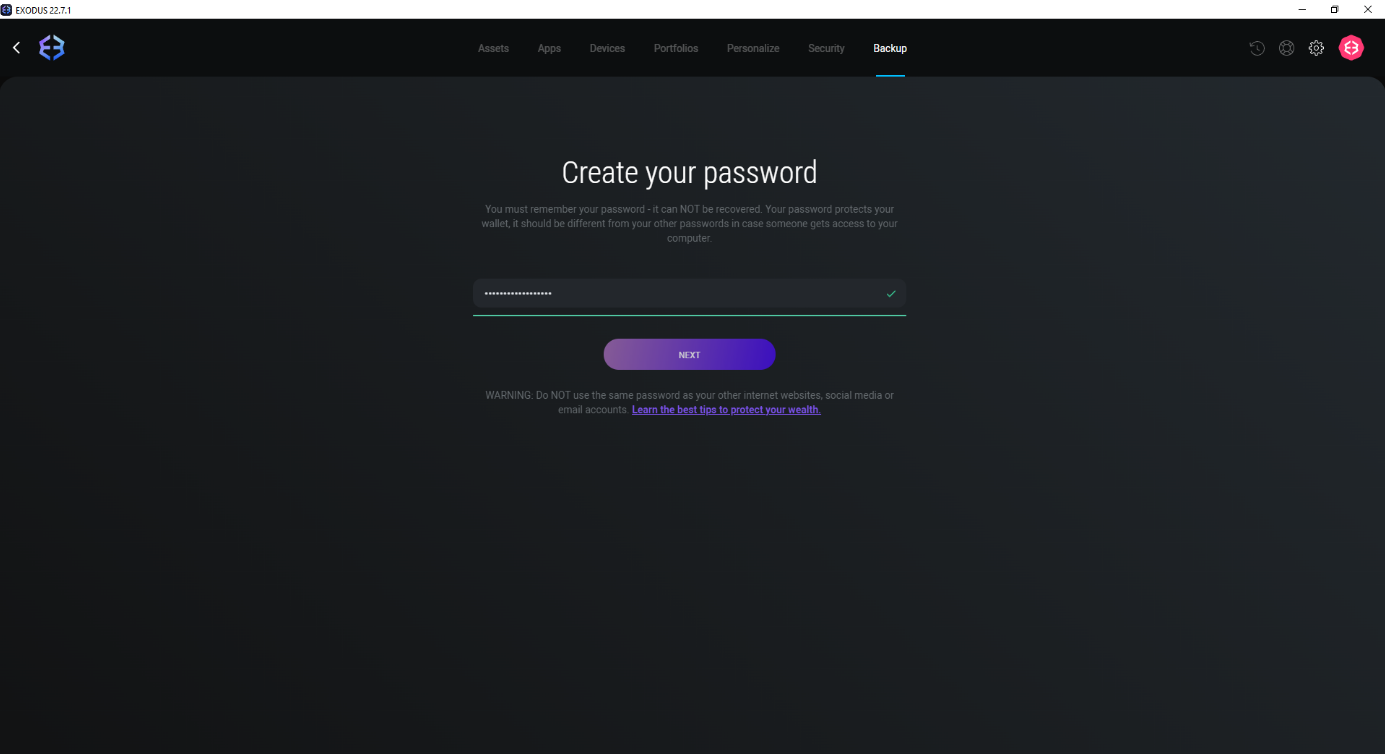
How to get started: step 5 (Exodus Wallet)
6. Exodus will automatically generate custom recovery phrases chronologically from one to 12. You will need to hover your mouse to unveil each phrase.
- Important: These phrases are essential, because they will be required to access your Exodus wallet if you lose access or have to reinstall the program on your computer or another device.
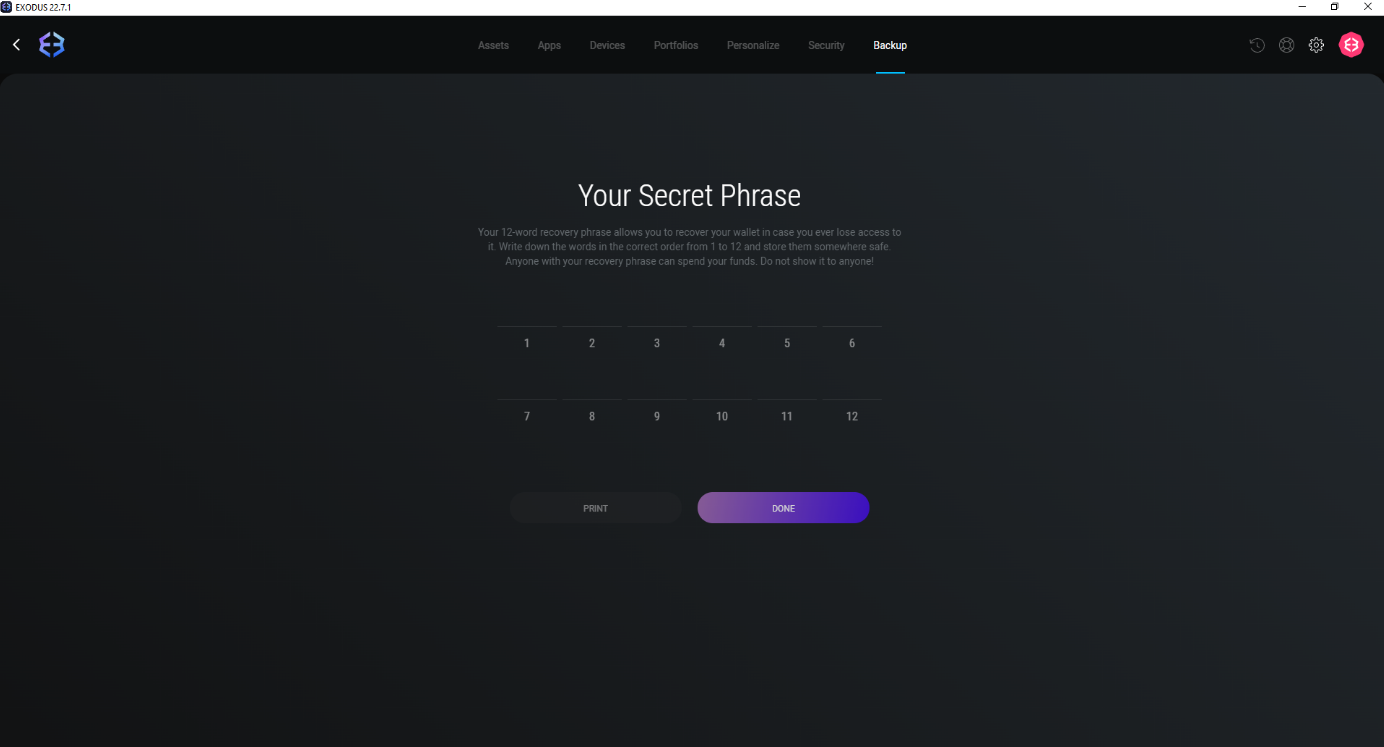
How to get started: step 6 (Exodus Wallet)
7. Store your recovery phrases or private key in a safe place, because it cannot be recovered if lost or forgotten. Exodus doesn't store a copy of the recovery phrase.
8. You will have to verify your recovery phrase. Exodus will randomly ask which word comes from a specific number to confirm them.
9. Once you have entered the words correctly, click “confirm” words.
You have now successfully created an Exodus wallet on a desktop. You can now use it to store, send and receive cryptocurrencies.
How to receive crypto in your wallet
After the installation, there are a few steps to complete to get your assets into Exodus.
1. First, click on “Assets."
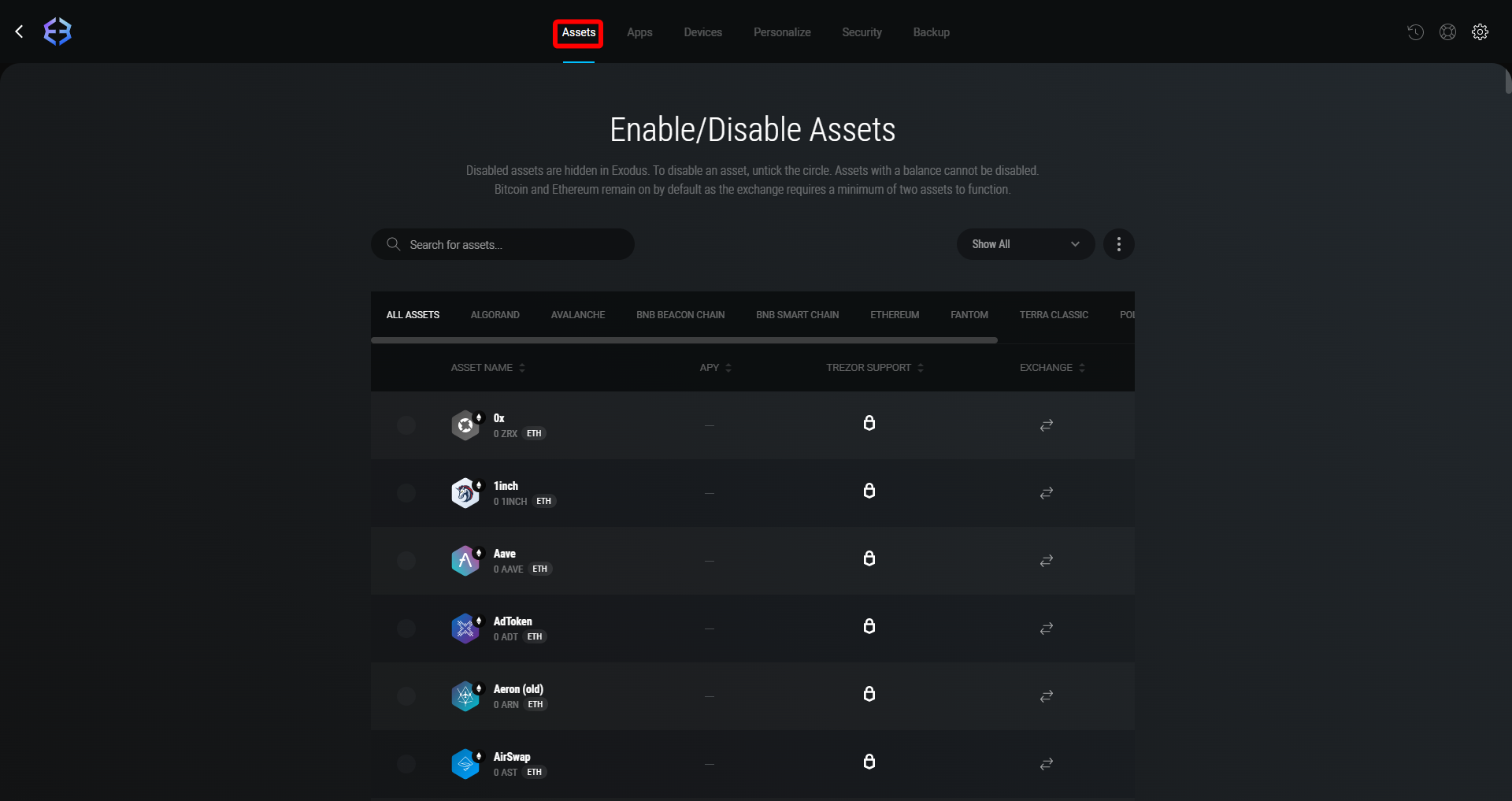
Receive: step 1 (Exodus Wallet)
2. On this screen, you will need to click on the asset or assets that you want to receive. In this case, we will use dogecoin (DOGE) as an example. You will need to click on the checkmark to enable it.
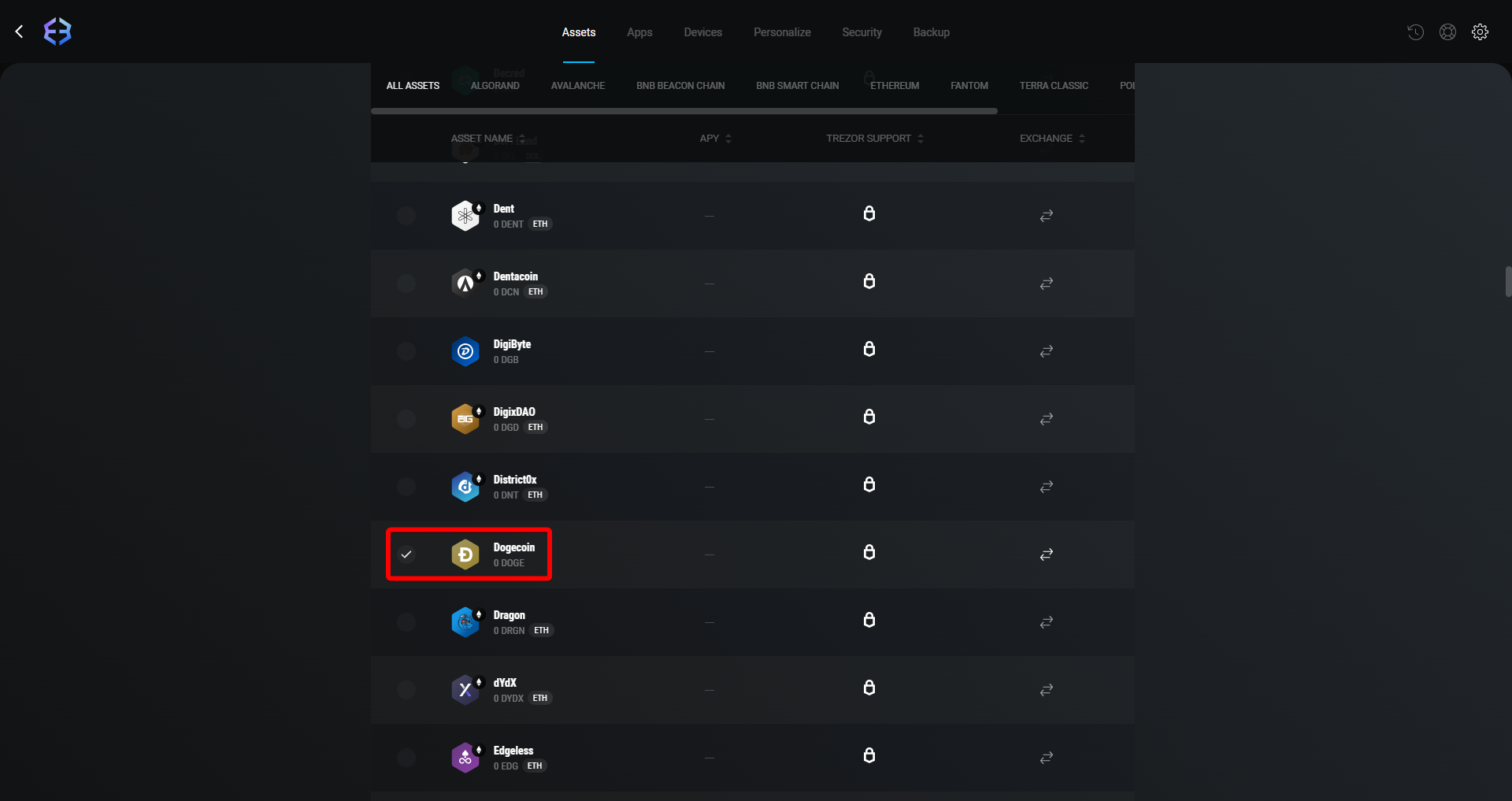
Receive: step 2 (Exodus Wallet)
3. After enabling it, you can click on “Dogecoin." This will bring you straight to the wallet specifically for dogecoin. Now you can press the “receive” button.
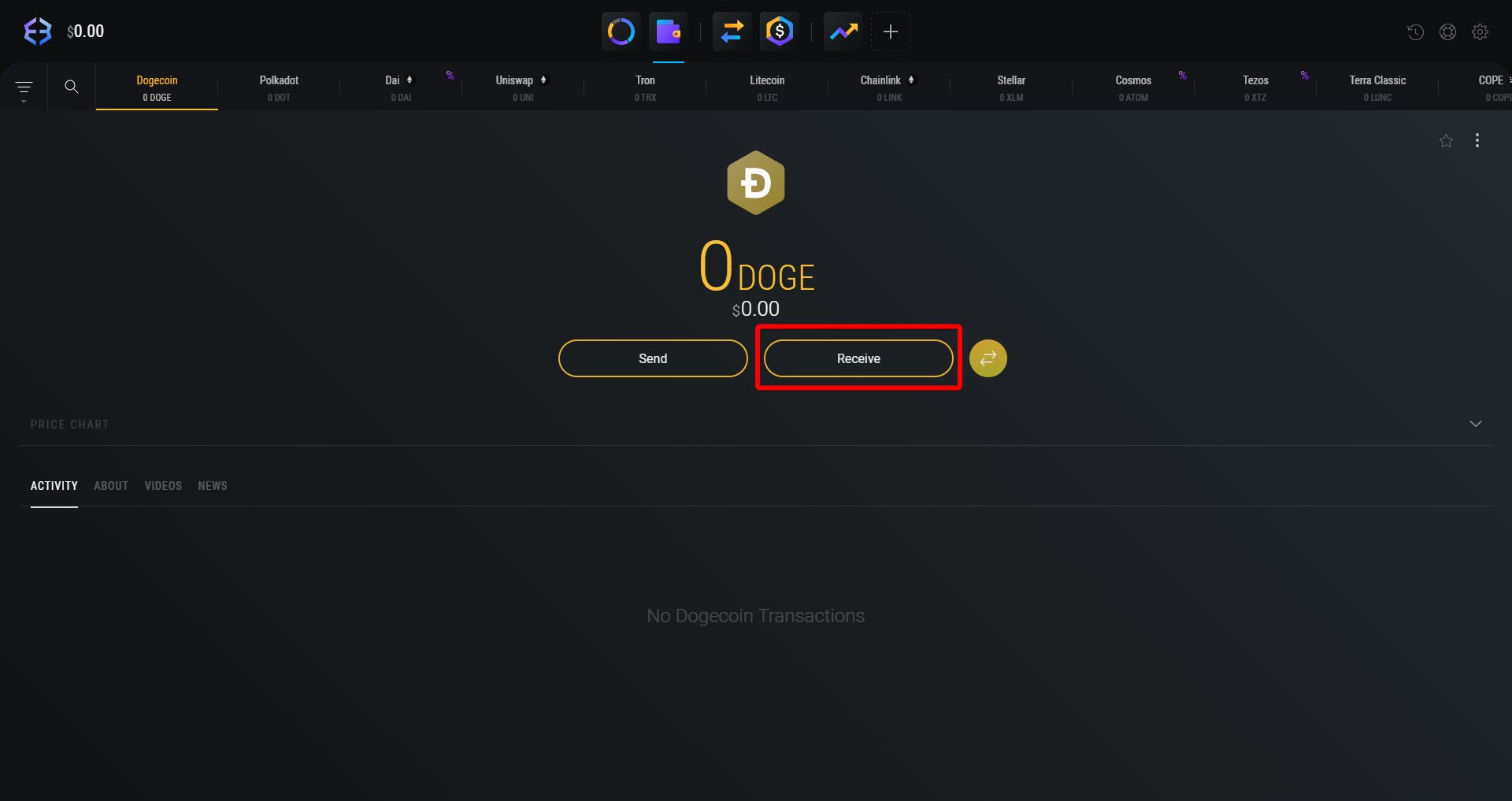
Receive: step 3 (Exodus Wallet)
4. You have the choice to either copy the address or use the QR code to transfer your dogecoin.
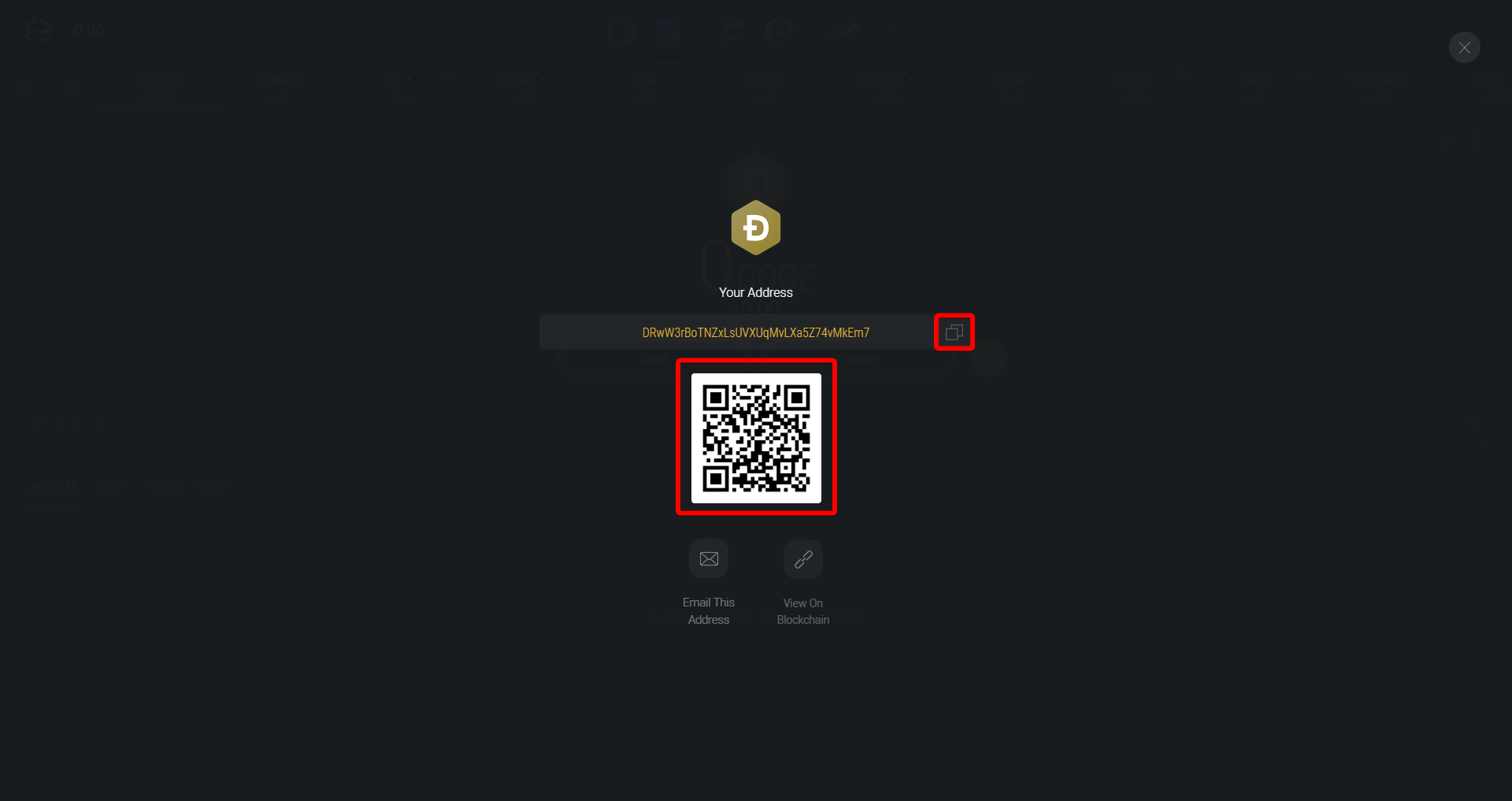
Receive: step 4 (Exodus Wallet)
Things to consider to decide if Exodus wallet is right for you
When choosing a crypto wallet, you need to know and weigh a few things before committing to it:
- Exodus is a hot wallet, which means it is directly connected to the internet, and yet it is non-custodial, which means you are responsible for keeping your private keys or recovery phrases safely.
- Exodus is a solid choice for those looking for an easily accessible crypto wallet.
- It is user-friendly and provides a high degree of security for your coins. Those looking for a long-term storage solution, however, may want to consider a cold wallet instead.
- Although you won't need to complete a KYC registration to open an Exodus wallet, the “buy crypto” functionality will funnel you to a third-party platform, MoonPay, to fund your wallet. That will require you to give your address and other personal information.
- The available apps and dapps are very limited. There is only one option to access an exchange (FTX), an NFT marketplace (internal Solana marketplace) and a decentralized finance (DeFi) platform (Compound).
DISCLOSURE
Please note that our privacy policy, terms of use, cookies, and do not sell my personal information has been updated.
The leader in news and information on cryptocurrency, digital assets and the future of money, CoinDesk is a media outlet that strives for the highest journalistic standards and abides by a strict set of editorial policies. CoinDesk is an independent operating subsidiary of Digital Currency Group, which invests in cryptocurrencies and blockchain startups. As part of their compensation, certain CoinDesk employees, including editorial employees, may receive exposure to DCG equity in the form of stock appreciation rights, which vest over a multi-year period. CoinDesk journalists are not allowed to purchase stock outright in DCG.
:format(jpg)/cloudfront-us-east-1.images.arcpublishing.com/coindesk/U5WHFTWQC5H23DNGXT2EVMEGAA.png)

:format(jpg)/cloudfront-us-east-1.images.arcpublishing.com/coindesk/DMG6DBTBSNHYRJNLOYIOQDROGI.jpg)
:format(jpg)/cloudfront-us-east-1.images.arcpublishing.com/coindesk/PFTJB3CBBZCGPEUSNCEZ7F3Z7U.jpg)
:format(jpg)/cloudfront-us-east-1.images.arcpublishing.com/coindesk/PJTR3KRDWJCRVE3QREM6KUOK7A.png)
:format(jpg)/cloudfront-us-east-1.images.arcpublishing.com/coindesk/FBKUMHO4CJFYPNW2J7ZSXYCBU4.png)
